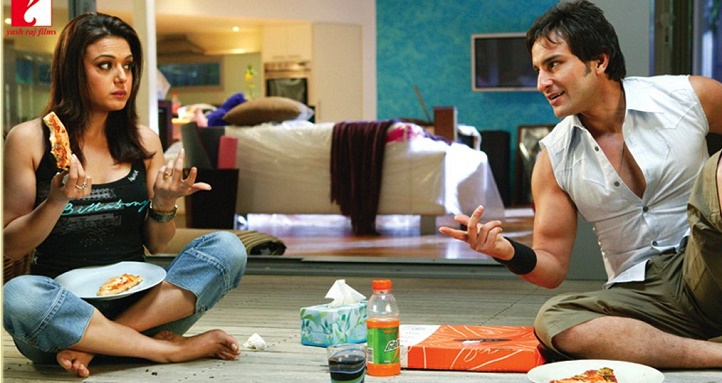What Are Exoplanets And How NASA Detects Life Beyond Our Solar System
Bharti Airtel Set To Acquire Telenor India Within This Year
Google Celebrates NASA’s Discovery Of Seven Earth-Like Planets With An Animated Doodle
Some Home Remedies That Might Sound Bizarre But Actually Work Like A Charm
Akshay Kumar Feels He Has Made Enough Money, Now Wants To Focus On Content & Characters
Delhi ATM Dispenses Fake Rs 2000 Notes From ‘Childrens Bank of India’ With ‘Churan Lable’
Adolf Hitler’s Personal Telephone During World War II Is Up For Auction In The US
From Salman Khan To Rekha, Neil Nitin Mukesh’s Wedding Reception Was Quite A Starry Affair
Supreme Court Vs Traditional Norms. Live-In Relationships Ruled As Marriage Under Law
The Supreme Court on Monday, April 13 ruled that domestic relationships where a couple lives together, outside of marriage, will be considered as marriage under the law. Such relationships, also known as live-ins have over time become increasingly popular. They allow individuals the freedom of getting to know one another without the burden of a legally binding relationship. These easy-in easy-out relationships exclude the abhorrent mess of family drama and prolonged legal battles in case the couple decides to break up. Expectedly so, these relationships are considered a taboo in Indian social culture. It is therefore even more surprising that the Supreme Court now considers them to be marriage.
But before we pursue deciphering the legal argument, let us try to understand what constitutes a live-in relationship.
Indira Sarma vs VKV Sarma
The judgement of Indira Sarma vs VKV Sarma by the Supreme Court, came in as a breath of fresh air. Amidst the lack of specific legislation on the subject, the apex court made an important decision to discuss live-in relationships under the pretext of the Domestic Violence Act. The court stated, "Live-in or marriage-like relationship is neither a crime nor a sin though socially unacceptable in this country. The decision to marry or not to marry or to have a heterosexual relationship in intensely personal".
It was the task of the court to determine whether this live-in relationship fell under the definition of "domestic relationship" under section 2(f) of the Protection of Women from Domestic Violence Act, 2005. Thus the court had to determine if this relationship amounted to a "relationship in the nature of marriage".
There is no legal definition for a live-in relationship. It is understood to be a domestic relationship between two people in a romantic relationship. Sexual intimacy is popularly accepted, although not mandatory.
A bench of Justice MY Eqbal and Justice Amitava Roy said continuous cohabitation of a couple would raise the presumption of valid marriage and the burden of proof would fall on the opposite party to prove that they were not legally married.
The Supreme Court since 2010 has consistently ruled in favour of couples living together as husband and wife, giving the woman the rights of a wife. These right include protection from domestic violence, the right to inherit property, the legitimacy of her children and the maintenance of woman after spilt, etc.
D.Velusamy vs D.Patchaiammal
The Supreme Court in this case allowed a live-in relationship to come within the purview of the Domestic Violence Act (DV Act), 2005, subject to fulfilment of some additional criterion.
A woman under DV Act can request compensation in case of physical, mental, verbal or economic abuse. The abused has been granted several rights and protections under this legislation. The woman is allowed custody of her children and a right to claim compensation for any harm caused.
In the Velusamy case the relationship was considered as a "relationship in the nature of marriage". There are certain pre-requisites of such a relationship, for instance, the couple must be of legal marriageable age, they must present themselves in society as akin to spouses, they must have voluntarily cohabited, they must be qualified to marry, therefore be unmarried.
If these guidelines are met, then the relationship is considered to be a marriage, and a complaint can be filed under the DV Act. In the Velusamy case the guidelines were quite vague, however, there are cases where the court suggests specific guidelines for the couple. Such as 'Domestic Arrangement', in which case the relationship will only be considered in the nature of marriage if the woman is bearing the responsibility of 'running the household'. She must do the household activities of cleaning, cooking and maintenance. So, in the eyes of the Supreme Court, a woman's role in a marriage is restricted only to household activities? Could one suggest then, that a woman who does not fulfil this role is unmarried?
Grandfather's mistress vs Rest of the family
The recent SC decision was taken during a property dispute case. A family contested that their grandfather, who was living with a woman for 20 years after the death of his wife, was not married to her and therefore she was not entitled to inherit the property after his death. They contended that she was their grandfather's mistress.
Despite the woman failing to provide proof that she was legally wedded, the court ruled in her favour after the family members admitted she was living with their grandfather in the joint family. She was therefore able to inherit any property of the deceased.
SPS Balasubramanyam vs Suruttayan
In this case, the court suggested that since the relationship extended over a long period of time, any child born of this union will be considered legitimate. There are however, certain complexities in this matter. The Hindu Marriage Act, 1955 considers all children born even out of wedlock to be legitimate and therefore entitled to any inheritance. Thus inheritance rights have been granted to children of live-in relationships, with respect to both ancestral and self-aquired property.
The problem here, is that in some cases courts have relayed back to the Hindu Marriage Act, and in some they have considered the time the couple has lived together. Thus raising questions of equal judgement in the courts. Recently though, most courts have considered children born of wedlock to be legitimate.
The argument
Calling a live-in relationship a marriage, is a lot like painting a horse black and white and calling it a Zebra - It's just not true.
That being said, legitimising a live-in relationship as a marriage does have its perks. Women have the right to sue under the DV Act, children born of the union can inherit property, women have the right to maintenance and/or property if they split, etc. These are all aspects of marriage that would not exist for couples in a live-in relationship had it not been for the Supreme Court's recent ruling.
However, how fair is it for the State to intervene in ones private relationships? This is a topic that will be debated over and over again. Yes, the ruling provides safeguards for those who enter a relationship like this. Yes, it is particularly beneficial for women and children. But even so, what of the couples that have chosen not to be married and are happily living in a consensual union?
Why must the State impose these laws on them? It is definitely a problematic ruling and one that is sure to be feverishly debated on social media and traditional media alike.






